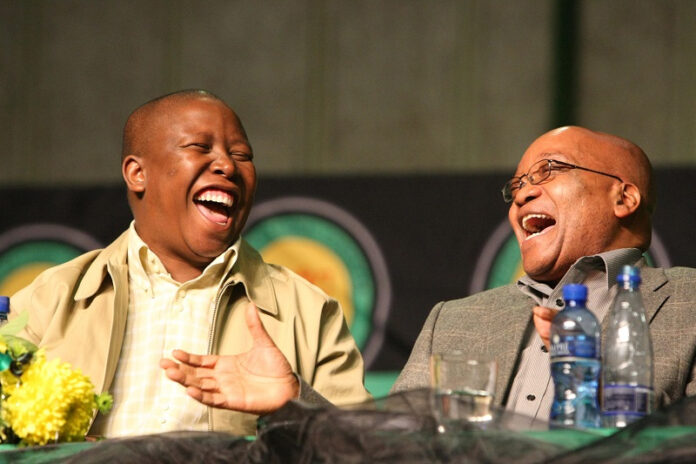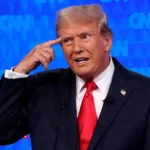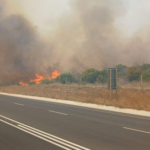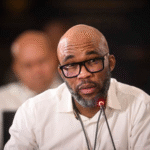Durban – The Umkhonto WeSiwezwe Party (MK Party) has forged a groundbreaking agreement with the Economic Freedom Fighters (EFF) and the National Freedom Party (NFP) to form a coalition government in KwaZulu-Natal (KZN). This unprecedented alliance has raised eyebrows and sent shockwaves through the political landscape, as it challenges the dominance of the Inkatha Freedom Party (IFP) in the region.
The historic meeting between MK Party leader Jacob Zuma and NFP President Ivan Barnes, held in Durban, marked a significant turning point in KZN's political landscape. The two party leaders emerged with a clear vision — to unite their respective parties and govern together, with the support of the EFF. This strategic alliance comes in the wake of the recent elections, where the MK Party emerged as the front-runner but fell short of securing an outright majority.
Insiders from both the MK Party and the NFP have revealed that the agreement hinges on the NFP's backing of the MK Party's bid to govern the province. The EFF, known for its progressive stance and support for radical economic transformation, has publicly endorsed this coalition, solidifying the tripartite pact. Together, these three parties will hold a significant 40 seats in the 80-seat provincial legislature, giving them a formidable presence.
An informant closely involved in the negotiations emphasized, "The deal is done between MK, EFF, and NFP. And we know we will get a few members from the ANC and IFP ranks who will vote with us. So there is no crisis." This revelation further underscores the potential challenge the ruling African National Congress (ANC), IFP, and Democratic Alliance (DA) face, as their combined strength amounts to the same number of seats held by the coalition.
However, it hasn't been smooth sailing for the MK Party. Sources reveal that during negotiations with the IFP, the latter made "ridiculous demands" of wanting 60% of the provincial government if they were to partner with MK. It later came to light that their demands were a ploy, as they had already struck a deal with the ANC, positioning their president as the country's second deputy president. These underhanded tactics have cast a shadow of doubt over the IFP's intentions and raised concerns about their commitment to coalition talks.
Adding to the intrigue, there are growing suspicions surrounding the timing of the first sitting of the KZN legislature. As the MK Party focuses on the provincial governance landscape, this sitting, scheduled on the same day as the national assembly sitting, is seen by some as a deliberate attempt to divert attention and push through a clandestine ANC-DA partnership. Observers speculate that certain elements within the liberation movement are determined to secure an ANC-DA marriage, regardless of the consequences.
In response to these developments, a high-ranking source within the MK Party expressed concern, stating, "Obviously, the MK will not be able to watch the KZN situation and national assembly at the same time. This has the hallmarks of political maneuvering by certain elements of the liberation movement. [They] want the ANC-DA marriage by hook or crook."

Follow Us on Twitter











